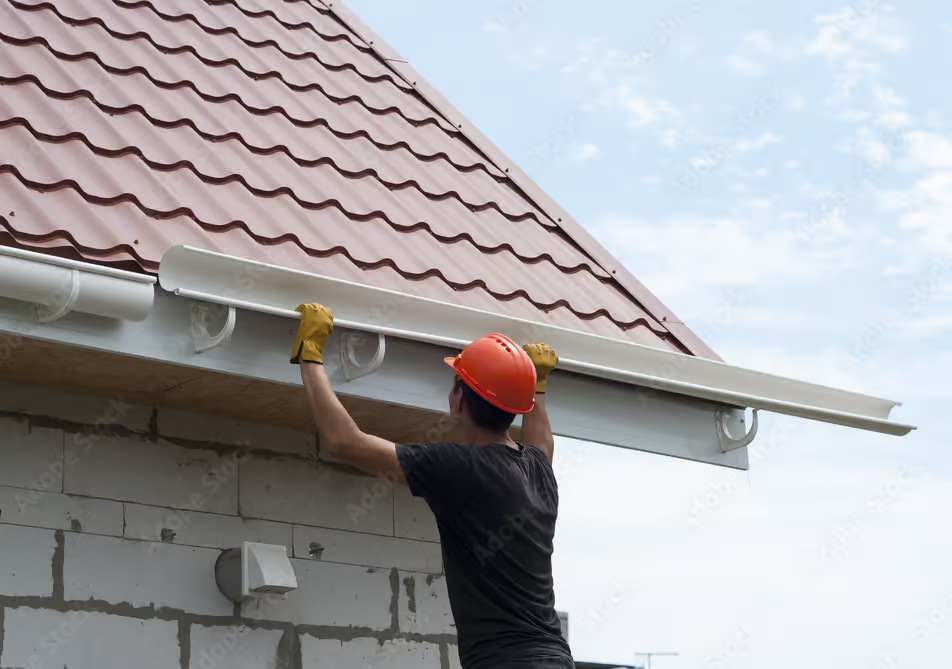When it comes to safeguarding your home, selecting the best materials for roof drainage is paramount. A reliable drainage system ensures that water is directed away from your roof efficiently, preventing potential damage and costly repairs. In this article, we will explore the materials that are most effective for roof drainage, ensuring your home remains safe and dry.

Understanding Roof Drainage
Before delving into the specifics of materials, it’s crucial to understand what roof drainage entails. Essentially, a roof drainage system is designed to guide rainwater and melted snow off your roof, into gutters, and away from your home. This prevents water accumulation which can lead to leaks, mold, and structural damage.
Key Components of a Roof Drainage System
A typical roof drainage system consists of several key components: gutters, downspouts, drains, and scuppers. Each plays a vital role in directing water away from your home. Choosing the right materials for these components is critical to the systems effectiveness.
Best Materials for Roof Drainage
Several materials are commonly used in constructing roof drainage systems. Below, we discuss the pros and cons of each, enabling you to make an informed decision for your home.
Copper
Copper is renowned for its durability and aesthetic appeal. It is resistant to rust and corrosion, making it an excellent choice for gutters and downspouts. However, copper can be expensive, which might not suit all budgets.
Aluminum
Aluminum is a popular choice due to its affordability and lightweight nature. It is resistant to rust, making it a long-lasting option. Aluminum gutters are easy to install and maintain, providing a balance between cost and performance.
Galvanized Steel
Galvanized steel is sturdy and can handle heavy rainfall. It is coated with a layer of zinc to prevent rusting. While durable, it is heavier than other materials, and the zinc coating can wear off over time, leading to rust.
Vinyl
Vinyl is a budget-friendly option that is easy to install. It is resistant to rust and corrosion, but it may not withstand extreme temperatures or heavy impacts as well as metal options.
Zinc
Zinc gutters and downspouts are highly durable and resistant to corrosion. They develop a protective patina over time, enhancing their longevity. However, like copper, zinc comes with a higher price tag.
Choosing the Right Material
The choice of material for your roof drainage system should consider your local climate, budget, and aesthetic preferences. For example, if you live in an area with heavy rainfall, galvanized steel or aluminum might be more appropriate. In contrast, if aesthetics are a priority, copper or zinc could be the better choice.
Considerations for Different Roof Types
The type of roof you have also influences material choice. For example, flat roofs may require different drainage solutions compared to sloped roofs. It’s essential to match the drainage system with your roof’s design to ensure effectiveness.
Benefits of a Well-Functioning Roof Drainage System
Investing in the best materials for roof drainage offers several benefits. It protects your home from water damage, enhances structural integrity, and maintains aesthetic appeal. Moreover, a well-maintained drainage system can increase your home’s value.
Preventing Common Issues
Proper installation and regular maintenance of your drainage system can help prevent common issues such as clogging, leaks, and rust. Ensuring gutters are clear of debris and checking for signs of wear can extend the life of your drainage system.
Installation and Maintenance Tips
When installing your roof drainage system, it’s crucial to ensure proper slope and alignment for effective water flow. Regular inspections and cleaning are also necessary to maintain functionality. Consider consulting a professional for installation and maintenance advice.
Expert Recommendations
Experts recommend scheduling regular maintenance checks, especially before and after the rainy season. This ensures that your drainage system is in optimal condition and can handle increased water flow.
Conclusion
Choosing the best materials for roof drainage is a critical decision for homeowners. By understanding the benefits and drawbacks of each material, you can make a choice that ensures the longevity and effectiveness of your roof drainage system. For further guidance, consider consulting resources like Northface Construction for expert advice.

FAQ
What is the most durable material for roof drainage?
Copper and zinc are among the most durable materials due to their resistance to rust and corrosion.
How often should roof drainage systems be inspected?
It’s recommended to inspect your roof drainage system at least twice a year, ideally before and after the rainy season.
Can I install a roof drainage system myself?
While some homeowners may choose to install their own systems, consulting a professional ensures proper installation and functionality.
This article contains affiliate links. We may earn a commission at no extra cost to you.






